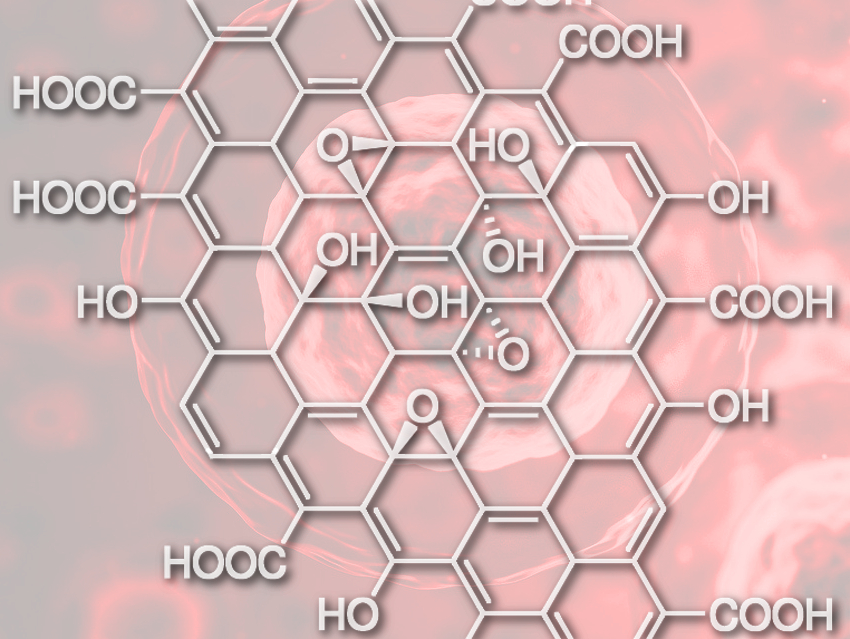Nanomedicine―an interdisciplinary field that encompasses aspects of medicine, pharmacology, and nanotechnology—is a growing area where new therapies are continually being developed. Nanomedicines could be useful to treat many diseases, but their safety needs to be ensured before they can be used in a clinical setting. Graphene-based nanomaterials, such as graphene oxide (GO), have been studied for medical applications, e.g., in cancer therapy. However, it is not yet known what effect GO could have on cancer metastasis.
Zhihong Zhang, Tianjin Medical University, China, Sijin Liu, University of the Chinese Academy of Sciences, Beijing, and colleagues have investigated the effects of low-dose exposure to GO on cancer cells, with a focus on the potential consequences for metastasis. The team exposed three different types of human cancer cell lines to low doses of GO: prostate cancer cells (PC3), lung cancer cells (A549), and liver cancer cells (HepG2). Then they observed the interaction between the GO sheets and the cell membrane using transmission electron microscopy (TEM), confocal laser scanning microscopy (CLSM), and atomic force microscopy (AFM).
The researchers found that a low dose of GO could induce structural changes in the membrane of the cancer cells. The GO triggers an epithelial−mesenchymal transition (EMT). This process causes cells to break free from a tumor and allows them to enter the bloodstream and potentially form metastases. These results point to a possible harmful effect of GO-based treatments.
- Graphene Oxide Promotes Cancer Metastasis through Associating with Plasma Membrane To Promote TGF-β Signaling-Dependent Epithelial–Mesenchymal Transition,
Jianqiang Zhu, Bin Li, Ming Xu, Rui Liu, Tian Xia, Zhihong Zhang, Yong Xu, Sijin Liu,
ACS Nano 2019.
https://doi.org/10.1021/acsnano.9b07891




